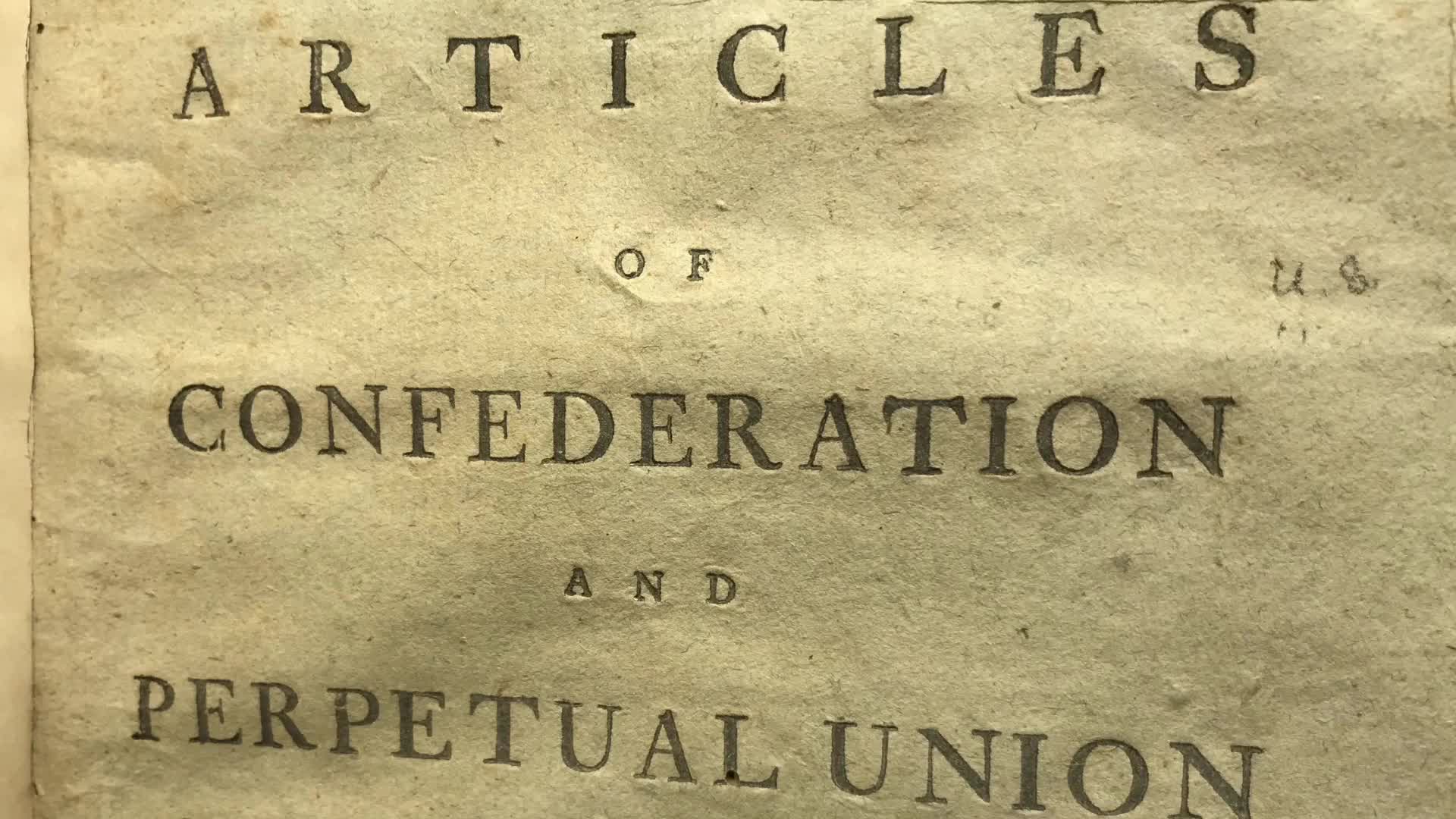About Publications Library Archives
heritagepost.org

Preserving Revolutionary & Civil War History

Preserving Revolutionary & Civil War History

Author: Edmund Pendleton
Date:1780
Annotation:
In 1781, the 13 original states ratified the first United States constitution, the Articles of Confederation. The Articles served as the new nation’s plan of government until the Constitution of the United States was ratified in 1789. In this letter, Edmund Pendleton (1721-1803) urges establishment of a formal compact among the states, and stresses the need for compromise as the only way to obtain union.
Under the Articles of Confederation, the national government was composed of a Congress, which had the power to declare war, appoint military officers, sign treaties, make alliances, appoint foreign ambassadors, and manage relations with Indians. All states were represented equally in Congress, and nine of the 13 states had to approve a bill before it became law. Amendments required the approval of all the states.
The Articles of Confederation represented an attempt to balance the sovereignty of the states with an effective national government. In order to protect states’ rights, the Articles set strict limits on congressional authority. Under the Articles, the states, not Congress had the power to tax. Congress could raise money only by asking the states for funds, borrowing from foreign governments, and selling western lands. In addition, Congress could not draft soldiers or regulate trade. There was no provision for national courts or a chief executive.
Equally important, the Articles did not establish a genuinely republican government. Members of the Confederation Congress were selected by state governments, not by the people. Further, power was concentrated in a single assembly, rather than being divided, as in the state governments, into separates houses and branches.
Document:
I have thought long ago that ’twas high time the confederation was completed, & feared some foreign Powers might entertain from its delay, suspicions of some secret disunion amongst the states, or a latent intention in Congress to keep it open for purposes unworthy of them; I am happy to hear it is resumed & think it becoming & indeed an indispensable duty in this, as in all other Social Compacts, for the contracting members to yield points to each other, in order to meet as near the centre of general good as the different interests can be brought, and did it depend upon my opinion I would not hesitate to yield a very large portion of our back [western] lands to accomplish this purpose…. 12 states were satisfied & agreed to confederate & yet one [Rhode Island] stops the whole business, setting up her judgment in opposition to so many. Yield to her in this, may not she play the same game to gain any future point of interest?
Source: Gilder Lehrman Institute